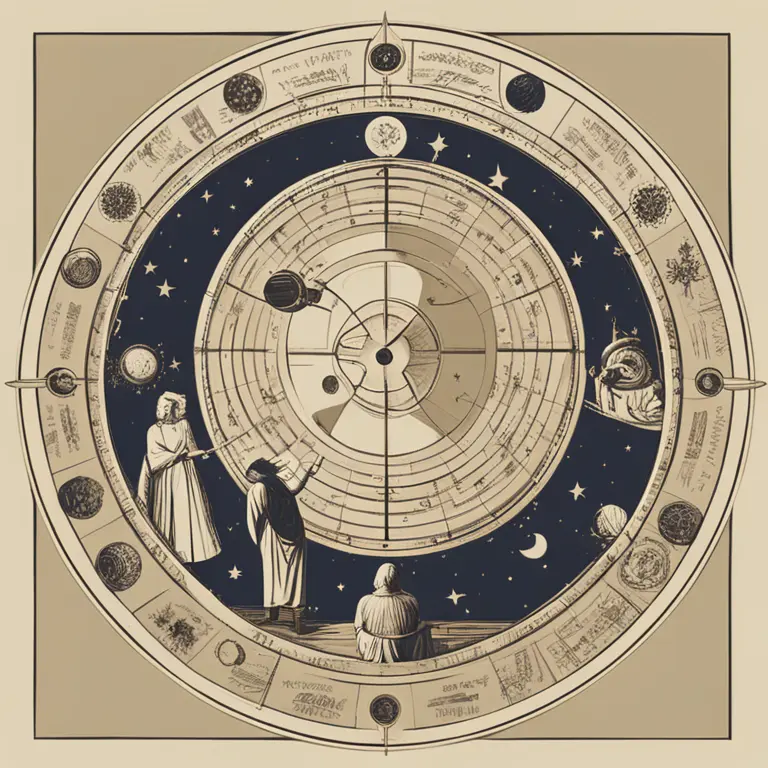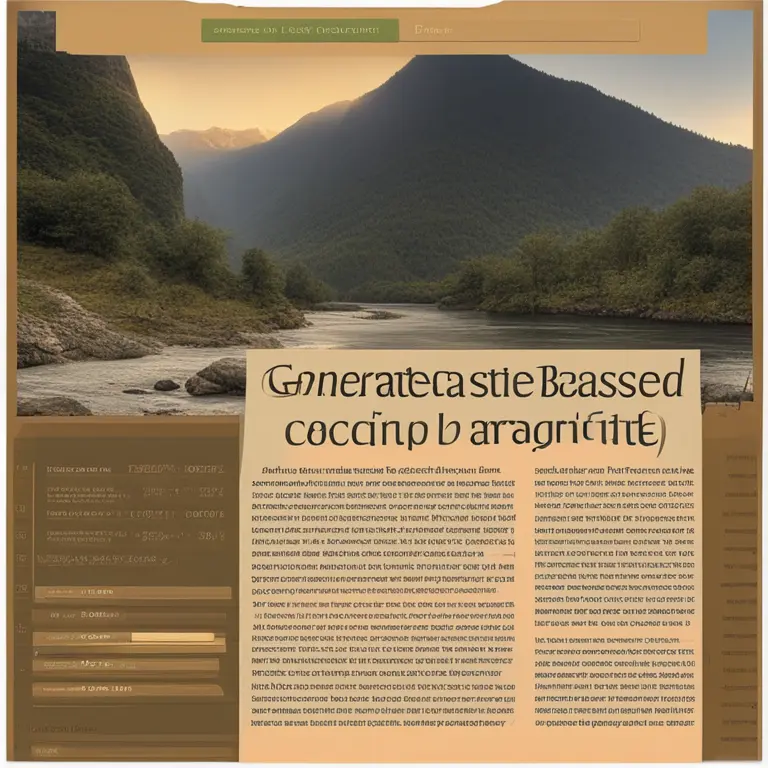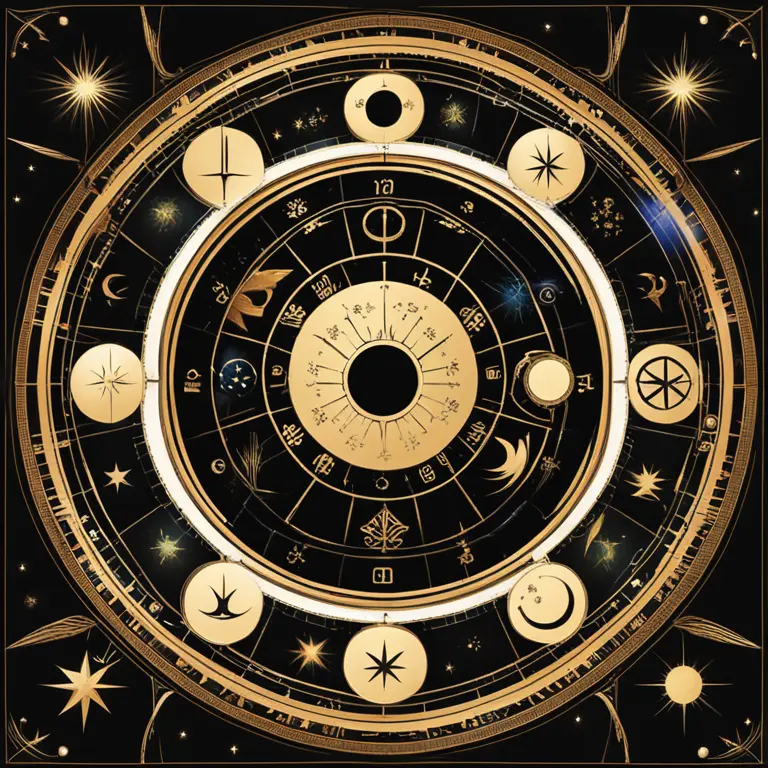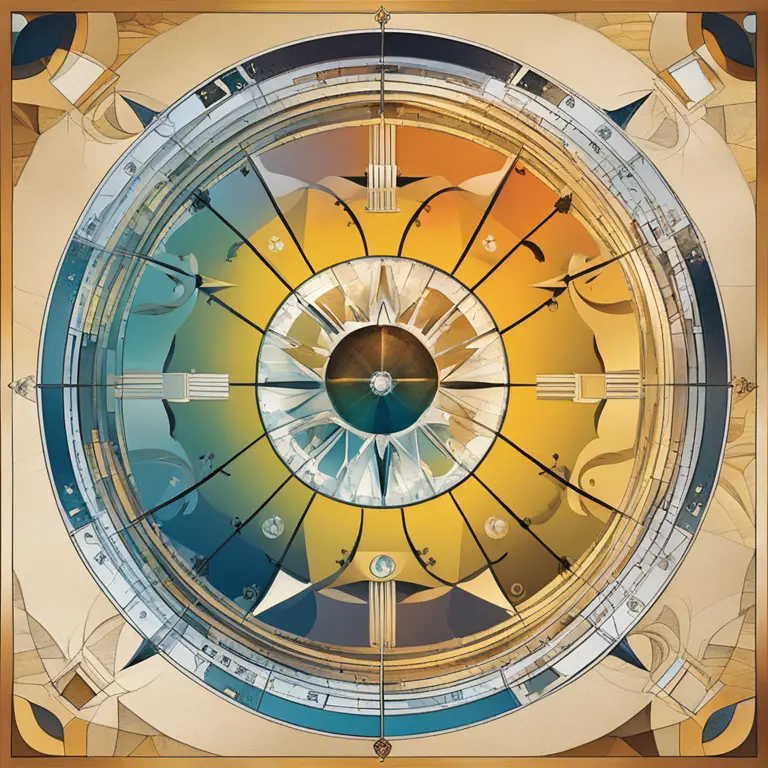
Astrology's Stance on Predicting Life's Endpoint
Explore the contentious realm where astrology intersects with life's finality, teasing out whether celestial insights can truly foretell the end.
article by Priya Deshmukh
The Astrological Debate on Mortality
Astrology has long tantalized humanity with its potential to uncover the secrets woven into our life stories, from love and fortune to calamity and demise. As we step into the modern world of sophisticated algorithms and astronomical advancements, the ancient art of astrology holds its ground, bracing against the winds of skepticism. Central to the debate is astrology's claim to predict life's ultimate transition: death. Could the positions of stars and planets truly spell the finite timeline of existence, or is this a misinterpretation of an otherwise symbolic guide? The dance between destiny and stardust remains an evocative mystery to unfold.

Interpreting Celestial Signs
Astrologers approach the subject of life's cessation with caution, for it treads a tender path interspersed with ethical, emotional, and spiritual implications. To comprehend astrology's perspective, one must first understand that it is not a tool for concrete predictions but a symbolic language that speaks in terms of potentials and patterns. Within the natal chart—an individual's astrological blueprint—malefic planets such as Saturn and Mars may hint at challenging periods, but astrology asserts no planet directly signals death.

The Eighth House and Its Portents
In astrology, the Eighth House is traditionally associated with transformation, rebirth, and yes, death. However, astrologers emphasize that it more broadly symbolizes profound life changes and regeneration. The Eighth House sheds light on the nature of our endings, yet it does not provide a stopwatch on existence. Aspects to this house may give impressions about timing or nature of significant transformations, but astrologers discourage a fatalistic reading, advocating instead for a nuanced understanding of this house's complex symbolism.

Modern Astrology's Ethical Approach
Contemporary astrologers are well aware of the heavy burden predictive astrology carries. Thus, regarding mortality, they often adopt an ethical stance that respects human agency and the unknowable forces of life. Predicting death is generally considered taboo, not solely for its grim implications but also for the profound psychological impact it may have on an individual. Modern astrology leans towards empowering clients, urging personal growth and self-awareness rather than deterministic proclamations.

Transits and Progressions: Times of Change
The advanced methods of transits and progressions bring nuanced perspectives for predicting life phases. Astrology's remarkable feature lies in its ability to delve into the qualitative aspects of these phases. For example, a challenging transit to personal planets might signal times of stress or transformation, but it remains a leap of interpretive faith to equate such transits with the cessation of life. Rather, astrology opens doors to personal evolutions and introspection.
Grappling with the Unknown
Astrology's reverence for the mysteries of life and death keeps it from overstepping boundaries into the realm of irreversible predictions. The unpredictability of life's length remains a sacred realm that many astrologers are hesitant to trespass. Astrology can illuminate life's pathways, casting light on the shadows of our fears and aspirations, but it stops short of claiming dominion over the veil separating life and whatever lies beyond.
Published: 2/13/2024
Modified: 2/13/2024
More predictions
Come back here soon to learn more about yourself and your future


The Fusion of Tarot and Horoscope Insights
Discover how tarot horoscope provides personalized guidance by blending the wisdom of the stars with the intuition of tarot.


The Moon Tarot Card: Insights and Meanings
Delve into the profound symbolism and astrological implications of the Moon Tarot card for guidance and personal reflection.


The Essential Tarot Card Meanings Guide with Images
Discover the meanings behind the mystical tarot cards with our comprehensive guide, complete with vivid imagery to enhance your understanding of each card's symbolism.